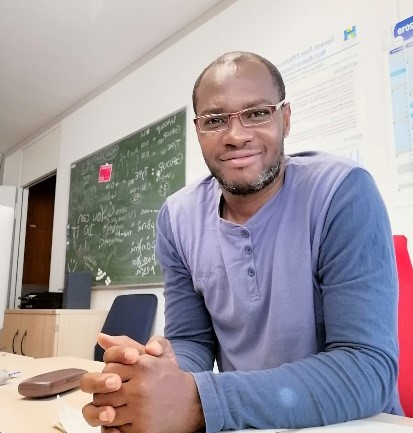Information sur l'intervenant

Dr Emmanuel Moselly Makasso
MINRESI/Cerdotola
Yaounde, Cameroon
Emmanuel-Moselly MAKASSO holds a PhD in Linguistics from the University of Provence (Aix-Marseille) in France. He is a senior scientist at the National Centre for Education at the Ministry of Scientific Research and Innovation, and at CERDOTOLA where he acts as the Research Programme Coordinator within the Oral resources Laboratory. His research focuses on descriptive and applied linguistics, and he currently works on Communinity-based language
Titre de la communication
“A Mother Tongue strategy in Creating and Disseminating Knowledge: a New Orientation in the Role of the African University”
Résumé de Communication
Abstract
One of the most awaited roles of the university is to create knowledge and address various problems that arise in the society. Thus, university in Africa is supposed to be at the forefront of the problems of underdevelopment, because they have to play a pioneering role in addressing poverty, social organization, low production, unemployment, hunger, illiteracy, and diseases (Mosha 1986). The main reason to explain why the universities in Africa are not likely to respond to African harm is the way knowledge is created and disseminated. In most cases, university curricula and contents are mirrors of western universities, and languages used in education are Indo-European languages as well, giving a so little room for African languages and sociocultural realities. And even the elites who are educated and are entrusted with the leadership in African development see Africa from outside, and they are not capable of relating knowledge to the realities of the African society (Prah 1993).
The aim of this paper is to demonstrate that African languages and cultures are central to African transformation in the fight against underdevelopment. In this context, the notion of development refers to a positive transformation of the socio-cultural, political, social, human living conditions, allowing people to achieve their human potential. In this respect we agree with Bodomo’s (1996) claim that a successful conceptualization and implementation of the societal transformation can only be achieved through the use of the mother-tongues or the languages indigenous to the society.
This study suggests a mother-tongue strategy that has to do with the introduction of African cultures and languages as research main subjects, and the use of those languages in the dissemination of knowledge. Referring to the approach of indigenous knowledge (Hurskainen 1993), and Development Linguistics (Bodomo 1996), this study suggests a massive contribution of Africans to the development discourse, giving a room to indigenous knowledge. The reflection issued here then opens to a couple of challenges:
Putting the African people at the center of development initiatives
Research focusing on African history and sociocultural ecosystem, using mother-tongues.
Empowering African languages in the sense to express science related to the African context, like in healing diseases, or farming.
Adapting the ICT in this endeavor, where possible.
This work is mostly exploratory, and it aims to raise awareness on the potential and the capacity of African languages to respond to African problems.
